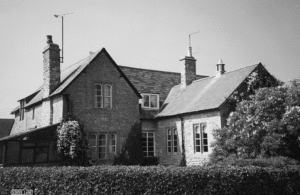
In the Conservative election manifesto from 2007 there was the promise to raise the Nil Rate Band (NRB) to £1m. In 2015 they achieved a majority government and in order to achieve this, rather than simply increase the existing NRB they decided to introduce a new relief confusingly titled the Residence Nil Rate Band (RNRB), starting at £100,000 from 6 April 2017 and increasing £25,000 a year to a maximum of £175,000 in addition to the existing £325,000 NRB.
The NRB would remain fixed until 2021 as a result, giving a total potential relief of £500,000 per person or £1m for a married couple.
How do I qualify:
The RNRB should be a straightforward relief, but is complicated by a number of factors.
It is available to all individuals on their death where ‘a main residence’ is passed to children or grandchildren. This means that where property is left to friends or other family members (siblings, nephews/nieces etc) the relief is not available.
It does not however require that you leave your main residence, but ‘a main residence’ which means that your holiday home in Spain could be used to benefit from the relief.
The RNRB is also transferable to a spouse in the same way that the standard NRB can be transferred if it is unused. If the first death occurred prior to 6 April 2017 there is a presumption that as the relief was not available to be used it can be transferred in full.
However, it is also tapered where the estate is greater than £2m and reduces by £1 for every £2 above that point. As such, currently an estate of £2.2m will not benefit from the RNRB at the moment, or £2.4m where the relief has been transferred from a pre-deceased spouse.
The value of your estate is considered before reliefs such as Business Property Relief or Agricultural Property Relief, so valuable business or farm assets, which would usually not impact on your IHT position could result in a substantial increase in the IHT liability.
There is also relief where properties are downsized or disposed of prior to death and the proceeds of the sale are left to children or grandchildren.
When do I need to take advice?
If you are subject to the taper (ie your joint or individual estate is in excess of £2m), it’s worth taking advice to review whether the relief can still be safeguarded.
If you have business or agricultural assets which will result in your estate being above £2m.
If your Wills leave your property into discretionary trust for the benefit of your spouse/children you will not be able to benefit from the additional relief, so your Wills should be reviewed.
If you are looking to downsize or sell your property you should take advice to ensure you can still benefit from the relief in full.
Contact us for more information or email anthony@fusionpartners.co.uk
